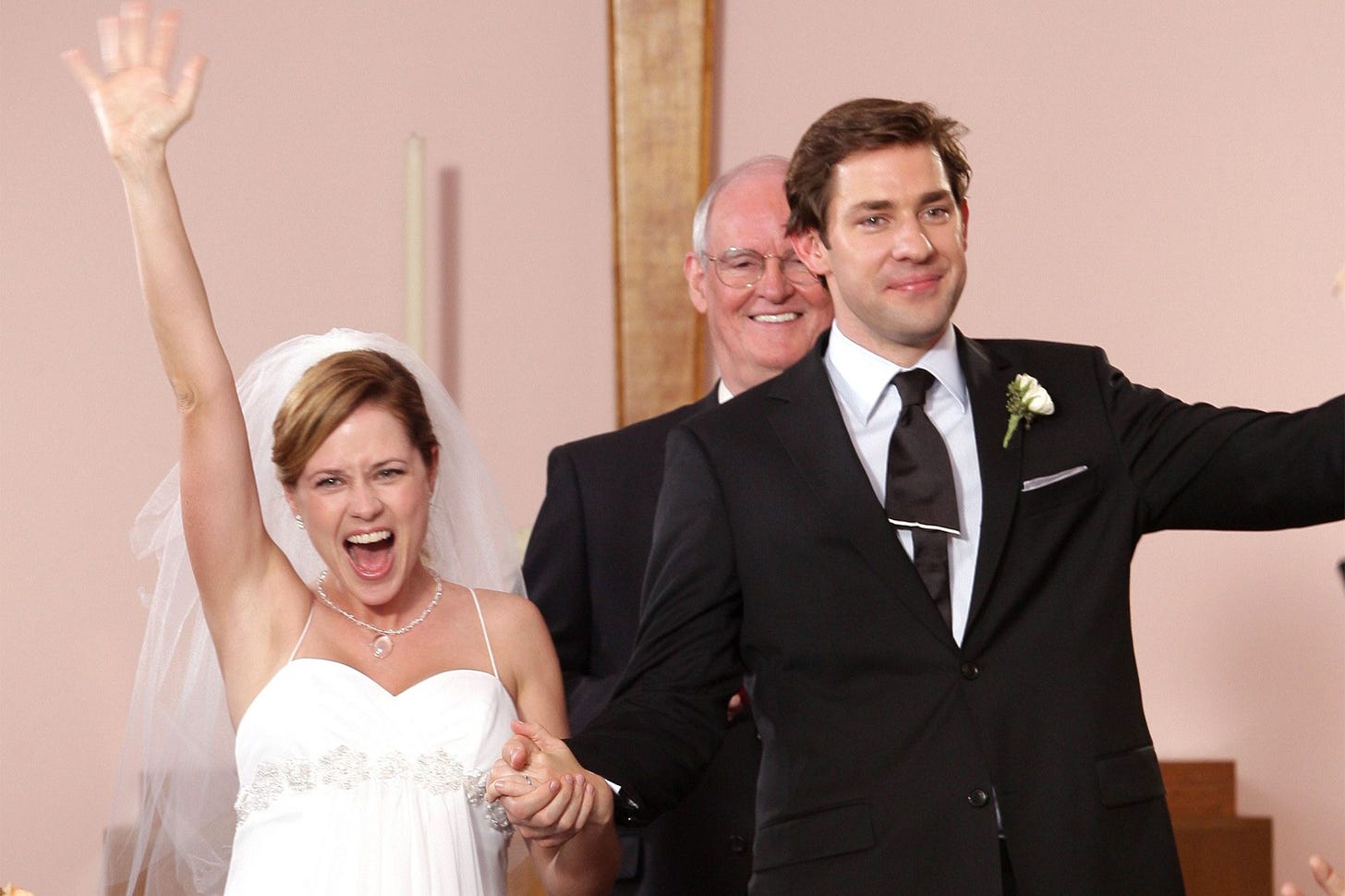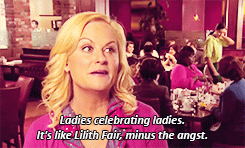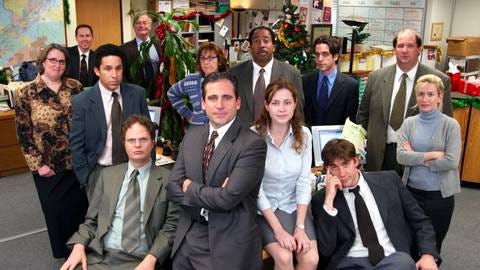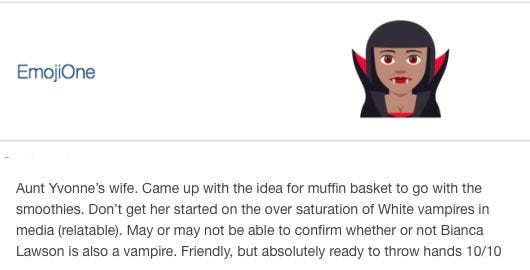EPISODE 440: PEEPEE POOPOO
You are Cordially Invited to the Halperts 10th Anniversary Party; Please Do Not Tell Michael Scott

POP CULTURE SPIRIT WOW
Hello and welcome to Santa Ana season in Southern California, aka If We’re Not Really Careful Everything Must Go, 2019 Edition. The winds only blew in this weekend and we immediately had two big fires (and a bunch of others, too). A worrying start to the fall, the moreso when you factor in one of our state power companies deciding to shut down power to 800,000 homes. It all sort of begs the question of whether California actually does have its act together as much as we/I like to think.
None of the fires were anywhere close to here, but that didn’t stop me from sending my mom this cartoon when she texted to ask if I was okay.

We always said we wanted lives filled with surprises, didn’t we? Everything’s great. Cool cool cool.

This week I know you joined me in celebrating the 10th anniversary of Jim and Pam’s wedding on The Office. (Relive it here.) If you took the time to create a flash dance mob at a Sunday church service, never mind what the congregation or priest said, it was the right choice and just remember Van Gogh wasn’t understood in his own time either.
(If I told them ahead of time it would betray the whole conceit of the episode, I told myself before dancing into our daily Mass at the Jesuit community here and accidentally kicking the presider in the face.
I am without a doubt Jim or Pam on the Buzzfeed Which Office Character Are You, but if you’re alone and you’re going to do the wedding flash mob you really need to be Dwight.)
Entertainment Weekly did an Oral History of the Making of the Wedding Episode, which is wonderful.
(Random aside: I know everybody likes the “Everyone Around Me, Telling Me They Love Me” version of dying, but for me a close second is dying while reading an oral history of a pop culture event. Love me those.)
Among the things the article revealed: the dance-down-the-church-aisle section was entirely improvised; it had to be filmed very quickly after the original idea got nixed. (Jenna Fischer, who plays Pam, talks in a really wonderful way about how that lack of planning meant she hadn’t seen it ahead of time, and how that made it all really special. Seems like the whole shooting process of the wedding was actually this very wedding-celebration-like experience for everybody.)
Also: the story point that got nixed was absolutely insane:
Creator Greg Daniels: Dwight got fascinated with this historical display at the hotel that talked about various animals. It started with a cow had been swept over the falls and survived, and then a couple of people tried to go over the falls in a barrel and were killed, and then some sheep went over the falls and survived. And he came up with this theory that you could survive going over the falls if you were riding a horse, because a horse would have the instinct of how to swim properly. And so he was trying to get people to listen to this theory, and then Roy interrupts the wedding trying to do a big, grand romantic gesture that nobody wants and just abandons the horse and drives home. So Dwight gets on and goes into the river above the falls, but panics and jumps off the horse at the last second, while the horse goes over in the background of the wedding. I remember scouting this tank on the Universal lot and talking about how we’re going to shoot this horse being swept over the waterfall. Then we got to the table read and I was the last defender of the horse. The entire staff and actors were yelling at me: “Don’t ruin Jim and Pam’s wedding with a horse!”
Director Paul Feig: We were all like, “This is insane. You can’t send a horse over the falls.” And Greg was like, “No, it would be really funny.” And there was this whole debate that went on in the writers’ room, people are like, “I don’t know, I think this is kind of dark and weird.”

Yeah, no, that was never going to work.
For me what’s great about that episode is that it pulls the always-feared trigger on the Jim/Pam relationship. Pop Culture Wisdom says that as soon as you put the Will They/Won’t Theys together, the show is over because the engine that drives the show forward is broken. But The Office would have four more years after the wedding; it turns out there’s a lot more to explore after people get married after all.
Go figure, How I Met Your Mother.

Go figure.
Also, when your cast is large, there’s plenty of room for other Will They/Won’t Theys, like Dwight and Angela, or Michael and Holly, or Andy and Erin or Kelly and Ryan or Toby and his latest victim.
Then over the summer I was hanging out with my sister’s kids, and I had the very strange experience of my niece Meggan giving me her very disappointed, I am Not the Fool you Think I Am eye roll when I tried to explain to her what The Office was.
Live reenactment:

Though it debuted before she was born, it turns out my niece has seen The Office. Like, all of it. And Friends too. And she can talk about characters and plot lines with a detail that I cannot muster, don’t look at me like that, The Office ended 6 years ago.
The answer, as you probably know, is that the show is streaming on Netflix.
Except is that the answer, really? Because there are a thousand million things on Netflix and new things every day and Netflix is actually pretty terrible when it comes to highlighting what to watch, and even if it weren’t, a 15 year old sitcom about office workers in upstate New York would not seem like the most natural of suggestion for a teenager.
So why this and not a hundred other sitcoms? I’ve been thinking about that for the last few months. If you were going to make a sitcom that might resonate beyond the next few years, what would The Office tell you about how to do it?
My Top Five Ideas:
1. ALREADY MENTIONED: HAVE SOME SWEET SWEET WILL THEY/WON’T THEY.

God that generates story. It builds so much good will, too. Jim Halpert might seem adorable with that bangy hair, but if he was in your office, you would not like him. He’s sarcastic and always messing with people and is all about that I’m Too Good for All of This vibe.
But pair him with Pam, this wonderful person he can’t take his eyes off of and also can’t be with, and he becomes the underdog we’re rooting for.
Another example: Dwight Shrute is insane, Joker-level dangerous. But get him struggling to be with Angela and even he becomes endearing.
2. USE THE HOLIDAYS, INCLUDING FAKE ONES.

This might seem like a small thing, but I think one of the genius moves of not only The Office but many of the shows that have come from its writers – Brooklyn 99, Parks & Rec – is to use our holidays. It’s just fun, for one thing. But it also creates natural moments for big beats in a season arc – Thanksgiving, Christmas, Valentine’s Day are all built for stories about the ups and downs of relationships, success, failure, yearning. And you get to do them every year, too! Calendars are cool, y’all!
I also think using holidays makes our world seem like more fun than sometimes we realize. I watch the Halloween parties on The Office or Brooklyn 99 and it tells me my reality could be more ridiculous than I sometimes allow. It gives me ideas.
The other related thing these shows do is they create holidays (often variations on ours). Brooklyn 99 has a Halloween Heist every year and also an episode that features the Pontiac Rabbit (Craig Robinson). Parks & Rec has Galentine’s Day, in which Leslie Knope gathers her female friends and gives them unbelievably perfect gifts. The Office has the Dundies. And again, these are wells that once dug the writers can go back to over and over again, and also that the audience looks forward to seeing.
3. RELY ON YOUR SUPPORTING CHARACTERS.

One of the really unusual things about The Office is that the show has a huge supporting cast. (I count eleven characters on the series beyond the four leads right from the pilot, and that number will only grow.) Some of these characters only get a couple lines here and there at first, but having them around gives the main characters and writers so many toys to play with in every episode. And it gives the show so much room to grow, as those characters eventually get stories and lives of their own.
You see Parks & Rec and Brooklyn 99, both which have much smaller casts, really learning from that by including a couple characters that are part of the office but at first don’t make the credits -- Donna and Jerry on Parks, Hitchcock and Scully on 99. And they slowly come to offer this whole additional set of experiences and perspectives for the show to mine.
Guest stars are much the same. Basically, these shows seem to see themselves as slowly building a universe. Each character you introduce adds a new place in that world. Ideally you want them to be the kinds of places we can go back to again and again.
4. WHERE THEY GO BIG, YOU GO SMALL.

The Office, Parks & Rec and Brooklyn 99 all have settings that are both really specific and off the beaten path: the Syracuse division of a paper company; a small town Indiana public works department; a police station that is not The Murder Squad or Sex Crimes Unit or anything like that.
These are not the pitches that TV execs immediately want to buy (or audiences want to watch for that matter). But that specificity and mundanity ends up being part of those shows’ genius. Focusing on a world that is inherently small gives those shows the freedom to look for fun and drama in ordinary things, like having a boss who has the opposite political opinion of you, or taking a day off from work with a coworker to treat yourselves, or an office training day or the fact your coworker refuses to smile.
Even The Good Place, which has this massive crazy concept, the afterlife, has at its heart not all the big cosmic mumbo jumbo but an ongoing ethics class.
Writer/Director David Lynch has this practice which I’ve mentioned here before of insisting his the actors go longer on takes, to slow down. It’s absolutely the opposite of what they learn on every other set. But when they follow Lynch, they end up discovering beyond that initial desert of boredom and fear there is an incredible world of possibilities.
I think The Office, etc. proceed from a similar position. Do the things that everyone thinks is way too small for a story, and you’ll find so much there.
5. TAKE OUR REAL EXPERIENCES AND NOTCH UP THE CRAZY.

Small towns have crazy things that make no sense anywhere else, like big statues of oxen except they call them oxes or town heroes that are racists and everyone just politely ignores it or street names that are spelled differently from block to block.
Offices are likewise filled with people who seem from a distance to be certifiable, and bosses that are nightmares, and the whole idea of Heaven and Hell and how you get in one or the other is actually pretty ridiculous.
What The Office and the others tend to do is take those experiences to an insanely fun place. Everyone in Pawnee is obsessed with a miniature horse called Li’l Sebastian. The whole notion of time or reality in the afterlife is so confusing from the perspective of our lives that we can reasonably say it moves in a way that looks like someone has written the word “Jeremy Bearimy.” (Do not click that link if you have not seen The Good Place yet and don’t want it spoiled. But it is amazing.) And Michael Scott is the worst boss ever.
BONUS (AND MAYBE MOST IMPORTANT): KEEP IT HOPEFUL.

I don’t know if it’s intentional or not, but all these shows are pretty hopeful. Enormously so, actually. People suffer, they lose things, they make sacrifices. But there’s an overall sense of the world as a good place and our lives as meaningful and with possibility.
That’s not true in a lot of other sitcoms. In fact, many sitcoms are actually tragedies in which people are trapped in bad situations – crazy families, crazy jobs, annoying neighbors, no one who loves them – and we laugh because it’s both familiar and it’s not happening to us. Meanwhile usually the characters stay trapped in those realities until the very end of the series, at which point they either finally get what they want or they embrace their reality.
The characters in The Office are all stuck in that crazy office. But they are allowed to change, too (at least the main characters are). Leslie Knope is given promotions and runs for office. People get married. And here The Good Place is the highest exemplar because every season the entire idea of the show completely changes. It’s an insane high wire act, it should absolutely not work and yet it does.
I have this terrible fear all of that is really obvious. So let me end with a quote from Jenna Fischer from that oral history article, talking about the fact that the show let Pam and Jim get married:
I’m really proud that we created this healthy version of a relationship and didn’t wait until the last episode to see them get together. There’s no cheating, there’s no crazy weird breakups and makeups. They just gently weather the storm.
Gently weathering the storm. Love that.
THREE TWEETS
On Texting Your Shrink:
On How Twitter Helps Us Grow:
On The Proper Evaluation of Vampire Emojis:
WATCH
SNL’s mashup on Joker and children’s TV this week was outstanding.
Also, if you have any love for the comic book character The Flash, you need this.
READ
The Helsinki Bus Theory of Life (aka Don’t Worry About Anyone Else, Just Stay on the #!%!ing Bus)
A hundred self-help books urge you to have the guts to be "different": the kid who drops out of university to launch a crazy-sounding startup becomes a cultural hero… yet the Helsinki theory suggests that if you pursue originality too vigorously, you'll never reach it. Sometimes it takes more guts to keep trudging down a pre-trodden path, to the originality beyond.
LISTEN
I’ve mentioned Conan O’Brien’s podcast Conan O’Brien Needs a Friend here before. Last week he interviewed David Letterman; it’s the first time he’s ever gotten to do that and it was a great conversation. (I see that this week he’s got Tina Fey, too.)
THINGS I’VE BEEN UP TO:
Greta Thunberg’s Call to Hope : I try my very best not to write about that guy over there in that house of milky complexion. I just don’t find it helpful. But I was asked if I might have something to offer an Australian audience about the impeachment circus, and I tried, basically by not talking about it at all.
(Also worth reading for the comments, which include an unexpected number of Americans who are very happy with America.)
On Succession, aka Why Are We So Invested in a Show that Kind of Valorizes Horrible Men
(Did you see the finale? I will not spoil it, in part because I don’t know how I feel. I think it was good? But also, is there ever a time when a show called Succession stops being about who will succession, because I am tired.)
And if you missed it, that interview with Fordham academic Jennifer Moorman about women in horror films is great. Hope to have another one this week or next!
RANDOM THING TO TRY: No email after 8pm or on Sunday. (Seriously so freeing.)
The journalist Anne Helen Petersen, whose newsletter I love and have mentioned here before, had a great line from an old boyfriend this week: What you are doing in your mind is what you are doing.
The things we get absorbed with – like answering emails, or role playing the things you want to say to the hordes of skateboarders who have descended onto your campus and skate right at you like this is the 80s movie Warriors, but you never will because they can use their skateboards to beat you silly and you are also supposed to be nice – are in fact the things we’re giving our life to. Our mental choices define our experience of reality.
I don’t know about you but I find that really freeing. Sometimes worries move in like distant relatives over Thanksgiving. Who invited them? we ask each other, and we feel like we’re stuck with them.
AHP’s quote reminds me, we get to choose where we put our attention. Sometimes maybe it is to our worries. But it can also be to the amazing full moon shining out the window right now.
Thanks for reading. See you next week.












